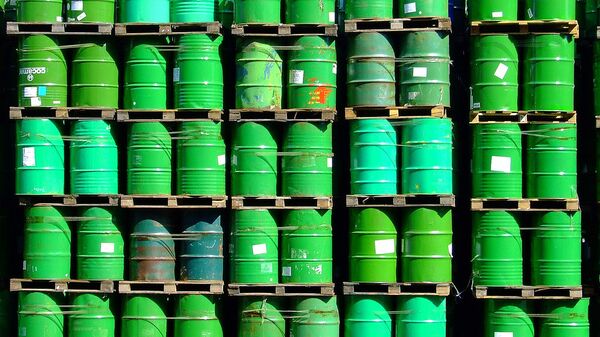Some analysts say those barrels may have ended up in China. Others say that the barrels were created by flaws in accounting and they do not actually exist. If this is true then the oversupply in the market could be much smaller and crude prices may rebound faster.
Barrels have gone missing before, but last year their amount reached the highest level in 17 years.
"If the market is tighter than assumed due to the missing barrels, prices could spike quicker," David Pursell, managing director at investment bank Tudor, Pickering, Holt & Co., was quoted as saying.
According to the author, last year the IEA estimated that the average daily output was 1.9 million barrels more that there was demand for. Some 770,000 barrels of that crude went into onshore storage while roughly 300,000 barrels were in transit by sea or via pipelines. Thus, some 800,000 barrels a day were unaccounted for.
In 1998, the last time the number of missing barrels was so high, the issue was addressed by US Congress. A senator asked the Government Accountability Office to examine the data. The agency found that statistical "limitations can introduce errors into the data." Most analysts agree with this conclusion.
"The most likely explanation for the majority of the missing barrels is simply that they do not exist," Paul Horsnell, an oil analyst at Standard Chartered, was quoted as saying by the WSJ.
Meanwhile, the IEA estimates crude supply and demand from global data, its numbers on where the oversupply is stockpiled come only from OECD country members. As a result, some of the missing barrels could be found in non-ECD countries, including China.
Over 50 percent of global crude demand now comes from non-OECD countries where statistical gathering is not well developed. Demand in countries outside the OECD could be larger than it is reported by the IEA, according to a report by investment bank DNB Markets.
Oil data is "an imperfect science," Rob Haworth, senior strategist at US Bank Wealth Management, told the WSJ.
"Whether these barrels are missing or not, the global glut of crude is still far from over," he concluded.





